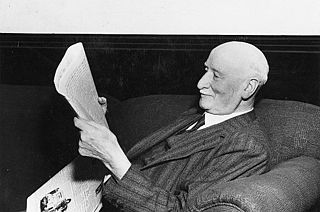Related Research Articles
Ashburton was a New Zealand electorate, first created in 1881 and centred on the South Island town of Ashburton.

Napier is a New Zealand parliamentary electorate, returning one Member of Parliament to the House of Representatives. It is named after the city of Napier, the main urban area within the electorate. The electorate was established for the 1861 election and has existed since. It has been held by Katie Nimon of the New Zealand National Party since the 2023 general election. It was held by Stuart Nash of the New Zealand Labour Party from the 2014 general election until 2023, when he did not stand for re-election.

Wairarapa is a New Zealand parliamentary electorate. It was first created in 1858 and existed until 1881. It was recreated in 1887 and has since existed continuously. The current Wairarapa electorate MP is Mike Butterick.

Whanganui is a New Zealand parliamentary electorate. It was first established in 1860 for the 3rd Parliament and has existed continuously since then.

Sir George Hunter was a New Zealand politician of the Reform Party. Born in Wellington, he took over his father's large landholding in the Hawke's Bay at age 18. He was a breeder of sheep and race horses, with his horse Cynisca winning the Wellington Cup three times in a row. Hunter was prominent in local politics, and represented the Waipawa electorate in the House of Representatives for a total of 22 years.
Raglan is a former New Zealand parliamentary electorate. It existed for three periods between 1861 and 1996 and during that time, it was represented by 13 Members of Parliament.
Franklin was a rural New Zealand parliamentary electorate. It existed from 1861 to 1996 during four periods.
Bay of Islands is a former New Zealand parliamentary electorate. It existed during various periods between 1853 and 1993. It was thus one of the original 24 electoral districts, and New Zealand's first ever MP was elected, although unopposed, in the Bay of Islands; Hugh Carleton thus liked to be called the Father of the House.

Eden, a former New Zealand parliamentary electorate, lay in the general area of the suburb of Mount Eden in the city of Auckland.
Waitemata was a New Zealand parliamentary electorate, from 1871 to 1946, and then from 1954 to 1978. It was represented by 18 members of parliament.
Awarua was a New Zealand parliamentary electorate from 1881 to 1996.
Wellington South is a former New Zealand parliamentary electorate. It existed for two periods between 1881 and 1946. It was represented by seven Members of Parliament.
Avon is a former New Zealand parliamentary electorate. It was created for the 1861 general election and existed until 1996. It was represented by 13 Members of Parliament and was held by Independents, Liberal Party or Labour Party representatives.
Buller is a former New Zealand parliamentary electorate, from 1871 to 1972. It was represented by eleven Members of Parliament.

Albert Edward Jull was a New Zealand politician of the Liberal Party, the United Party and from 1938 the National Party.
Wellington Suburbs was a parliamentary electorate in Wellington, New Zealand. It existed from 1893 to 1902, then from 1908 to 1911, and from 1919 to 1946. The electorate was represented by six Members of Parliament.
Dunedin Central was a parliamentary electorate in the city of Dunedin in Otago, New Zealand from 1881 to 1890 and 1905 to 1984.
Christchurch South was a parliamentary electorate in the city of Christchurch, New Zealand from 1881 to 1890 and then from 1905 to 1946.
Hawke's Bay was a parliamentary electorate in the Hawke's Bay Region of New Zealand from 1881 to 1996. In 1986 it was renamed Hawkes Bay.
Oamaru was a parliamentary electorate in the Otago region of New Zealand, during three periods between 1866 and 1978.
References
- The General Election, 1893. Government Printer. 1894. Retrieved 19 November 2013.
- The General Election, 1899. Wellington: Appendix to the Journals of the House of Representatives. 19 June 1900. Retrieved 12 February 2014.
- The General Election, 1925. Government Printer. 1926. Retrieved 20 November 2014.
- The General Election, 1928. Government Printer. 1929. Retrieved 29 November 2014.
- Hislop, J. (1915). The General Election, 1914. National Library . Retrieved 6 December 2014.
- Hislop, J. (1921). The General Election, 1919. National Library . Retrieved 6 December 2014.
- Hislop, J. (1923). The General Election, 1922. Government Printer. Retrieved 20 November 2014.
- Mansfield, F. W. (1906). The General Election, 1905. National Library . Retrieved 24 December 2014.
- Mansfield, F. W. (1909). The General Election, 1908. National Library . Retrieved 4 December 2014.
- Mansfield, F. W. (1912). The General Election, 1911. National Library . Retrieved 5 December 2014.
- McRobie, Alan (1989). Electoral Atlas of New Zealand. Wellington: GP Books. ISBN 0-477-01384-8.
- Wilson, James Oakley (1985) [First published in 1913]. New Zealand Parliamentary Record, 1840–1984 (4th ed.). Wellington: V.R. Ward, Govt. Printer. OCLC 154283103.